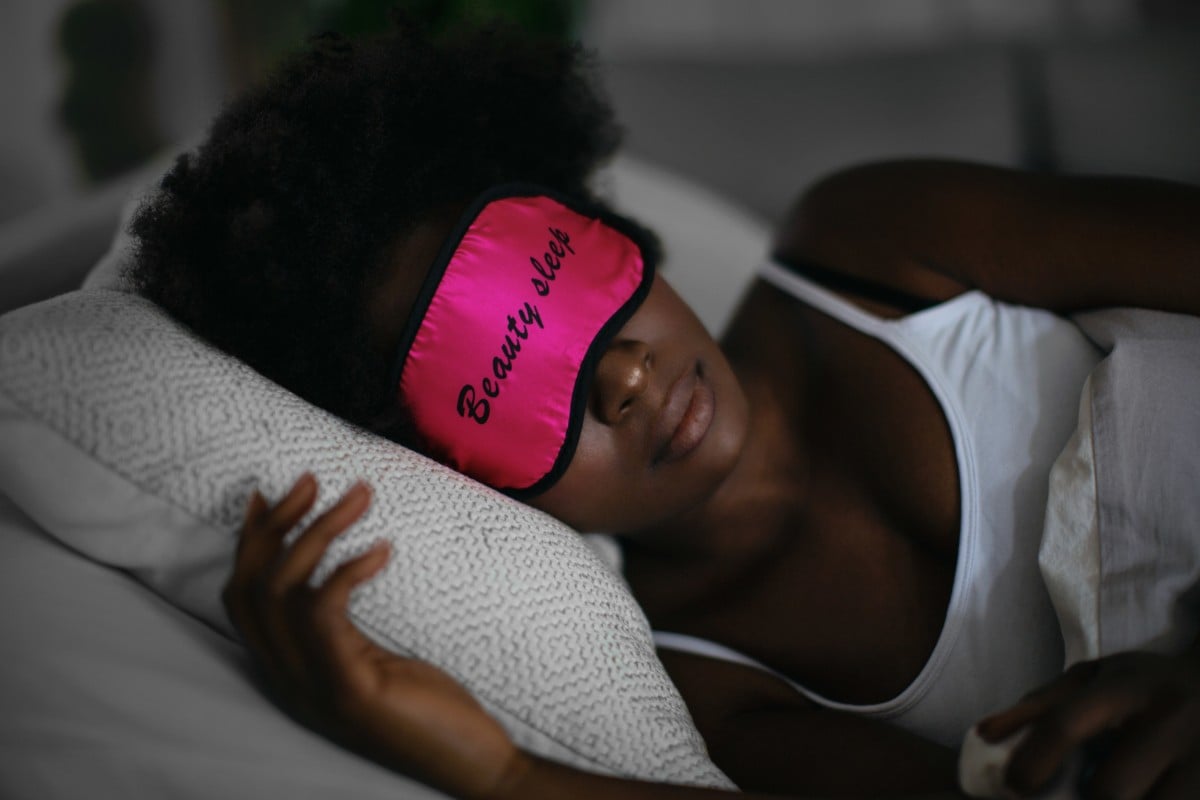Daytime vs. nighttime skincare routines: what products to use at different times of the day
Wondering if your morning and evening skincare routines should be different? You’re not alone.
As a skincare consultant, I’m often asked if it’s necessary to have two separate routines in the morning and in the evening. My answer is usually the same: it depends on you, your skin and your goals. I know that quality skincare isn’t cheap, and I also know that for most people, indulging in a multi-step regimen using a variety of different products is a hassle. There’s nothing wrong with keeping it simple – you know, less is more. So I’m not here to push unnecessary products or urge you to undertake complicated routines that don’t fit your lifestyle. Remember, the best skincare routines are the ones you can stick to. Whether you prefer a simple cleansing and moisturizing regimen or a proven 10-step regimen, the key is to be consistent.
However, there is another side of the coin, and that is people with more complexion issues who need to target specific problems. For those people, using the same products in the evening as in the morning, or skipping the morning or afternoon routine, can lead to disaster. It may also not be effective in treating problems such as acne, wrinkles and dark spots.
So what’s the point here? Whether you follow the same routine in the morning and evening, or use two different strategies at different times of the day, it really depends on your skin and how much time and money you are willing to spend. Here are all the key points I share with my patients to help them develop the best morning and evening skincare routines for their needs.
Morning and Evening Skincare Routines
First of all, there is nothing wrong with using the same skincare products in your morning and afternoon routines. It’s cost effective, less hassle and still produces great results if you use the right products and layer them in the right order. However, keep in mind that skin has different needs for daytime and nighttime. So by focusing on each of these needs in two targeted routines, you can ensure that your skin is receiving the best possible care at every moment of the day.
In the grand scheme of things, the morning routine should focus on protection and hydration, while the evening routine should be about repair and healing. This rule applies to almost everyone, and it’s the best way to take care of your skin – and the way most dermatologists recommend.
Because skin is more responsive to regenerative ingredients like retinoids and peptides when it goes into repair mode at night, you need to provide it with products that support that process while you sleep, and sunscreens and antioxidants (like vitamin C) are more effective during the day to protect against pollution and sun damage.
Don’t worry. You don’t need two completely different product lines to complete your morning and evening routine. In most cases, swapping a light morning moisturizer for a heavier moisturizer and adding a retinol or AHA/BHA product at night will suffice.
Different skin types may require different morning and evening routines
Here’s another fact: there is no one-size-fits-all answer in skincare, so what works well for your friend may not work well for you.
For example, someone with oily skin may use a toner in the morning to remove excess sebum, while someone with dry skin may need to use a richer cream at night to prevent dehydration. Similarly, people with dry skin often skip their morning cleanser to avoid excessive moisture removal, while those with oily skin indulge in a double cleansing routine to more thoroughly remove oil, bacteria and makeup.
With a myriad of options, establishing a personalized morning and evening routine that works for you (and only you) is never easy. If you’re feeling stuck, here are some helpful tips to help you get started.
Morning Routine
Your morning routine is all about keeping your skin moisturized and protected from external stressors throughout the day. Therefore, a light moisturizer, antioxidant serum and sunscreen are essential.
Prepare
Start your morning routine by cleansing your skin. Whether you prefer to use a gentle cleanser or simply splash your face with warm water, the choice is yours. However, if you wake up with very dry and flaky skin, consider skipping the cleanser in the morning as it may remove essential oils and leave your face feeling even drier. Use water or a facial mist instead. On the other hand, if you have a very oily complexion, cleansing in the morning can help reduce the greasiness and prevent the formation of pimples and clogged pores.
Hydrate
During the day, it’s best to use a lightweight moisturizer that hydrates your skin without feeling heavy or greasy. Choose a formula that contains moisturizers such as hyaluronic acid, glycerin, panthenol and aloe vera, and apply after cleansing and serum. If necessary, reapply moisturizer up to 3 times a day.
Protection
Making your skin completely protected against sun damage, pollution, dust and other environmental factors during the day is absolutely non-negotiable. These factors can lead to skin damage and even premature aging. So, at the very least, you should make sun protection the last step of your daytime routine and reapply every two hours if you spend a lot of time outdoors – I recommend these SPF 50 sunscreens.
To further strengthen your skin’s defenses, you can apply an antioxidant serum with vitamin C after cleansing and before moisturizing. Think of it as a cavalry against the free radicals that manage to get through the sunscreen and into your skin.
Nighttime Routine
In terms of your nighttime routine, the focus should be on replenishing your skin barrier and treating your specific skin concerns. Therefore, you will need to swap out your daytime moisturizer for a thicker cream and replace your antioxidant serum for targeted treatments such as retinol. In addition, you can add an exfoliator, eye cream, face oil, or even a sleep mask.
Reaching Targeted Treatments
Because skin is most receptive right now, you need to bring out the heavy hitters to get them to work their magic overnight. This is therefore the ideal time to use retinol serums, which are an almost all-in-one solution for most skin enemies and an important preventative measure against the signs of aging. Retinol increases cell renewal and collagen production – two processes that also occur while you sleep – so by using it before bed, you can take full advantage of its skin-renewing power.
However, if you are prone to acne, a treatment with salicylic acid or benzoyl peroxide (such as Kate Somerville EradiKate) may be better for reducing blemishes and controlling acne.
PS: Once or twice a week, replace your retinol serum or acne treatment with an exfoliator containing AHA and BHA to remove dead cell buildup and promote a smoother appearance.
Restore skin
To restore the lipid barrier – your skin’s first line of defense against environmental stressors – try mixing your night cream with ceramides, niacinamide, fatty acids and cholesterol. These ingredients help improve barrier function and increase hydration, both of which are essential for healthy skin. They also reduce the chances of breakouts, dehydration, redness and rough texture.
Slugging is also a popular skincare technique that people use to hydrate in their PM regimen. It basically means applying a thick layer of petroleum jelly or other sealant to your face after you have completed your entire skin care routine. This helps form a protective film on the skin to lock in moisture and prevent it from evaporating during Zzz. This is especially effective if your complexion is dehydrated or during the winter months when your skin is drier than usual. However, if you have oily skin, use a lightweight moisturizer instead to prevent clogged pores.
Cleanse more thoroughly
Nighttime is also associated with deep cleansing. If you can skip washing your face in the morning, you need to cleanse your skin thoroughly at night to remove the day’s makeup and sunscreen and to eliminate all traces of accumulated dirt and pollution. Most of the time, a gentle cleanser will suffice, but if your skin produces excess sebum and is prone to acne, it’s best to double cleanse. This means first using a makeup remover oil, which is more effective at removing oily impurities (such as makeup and sebum), and then using a water-based cleanser to remove any oil stains left behind from the first cleanse.
It’s time for some extra TLC
Finally, for a more hydrated complexion overnight, consider using a facial oil or sleep mask as the final step in your afternoon treatment routine. Adding a nourishing eye cream to your nighttime routine may also help, as the delicate skin around the eyes can benefit from targeted hydration and anti-aging ingredients.
The best order to use skincare products for an effective routine
The secret to a perfect skincare routine is to strategically layer your products, starting with the lightest, most hydrating textures and gradually building up to the thickest, most closed textures. Make sure you cleanse first, then apply toner, serum, eye cream, moisturizer and sunscreen in the right order for maximum results.
In the morning or evening, the following is the best order to apply products:
Facial Cleanser
Toner
Serum
Eye Cream
Moisturizer
Face Oil
Sunscreen
Why is a nighttime routine essential?
Skin regenerates at night, so using targeted products to support the natural repair process is essential to maintaining healthy skin. In addition, this study shows that the skin’s pH is naturally more acidic at night, which makes it easier for products to penetrate, especially acidic exfoliators. This means that a nighttime routine can provide more significant benefits than a daytime routine.
What time of day should you do your nighttime skincare routine?
It depends; you need to find a time that fits your schedule and allows you to devote at least 8 minutes to properly care for your skin. You can do this right after you finish your evening activities or right before you go to bed. It’s your choice, as long as you are committed to doing it every night.
Is it okay to just do my skincare in the morning?
It is best to do a skincare routine twice a day, in the morning and in the evening. However, if your skin is already in good condition and you don’t have any issues to address, don’t feel guilty about skipping some products during the night or on your first day (which is your choice). However, it is still important to cleanse your skin at night and apply sunscreen in the morning. This is non-negotiable.


